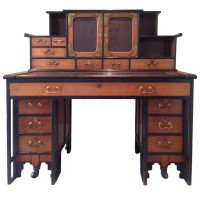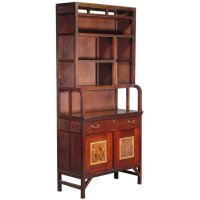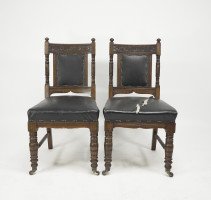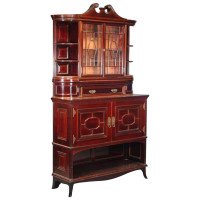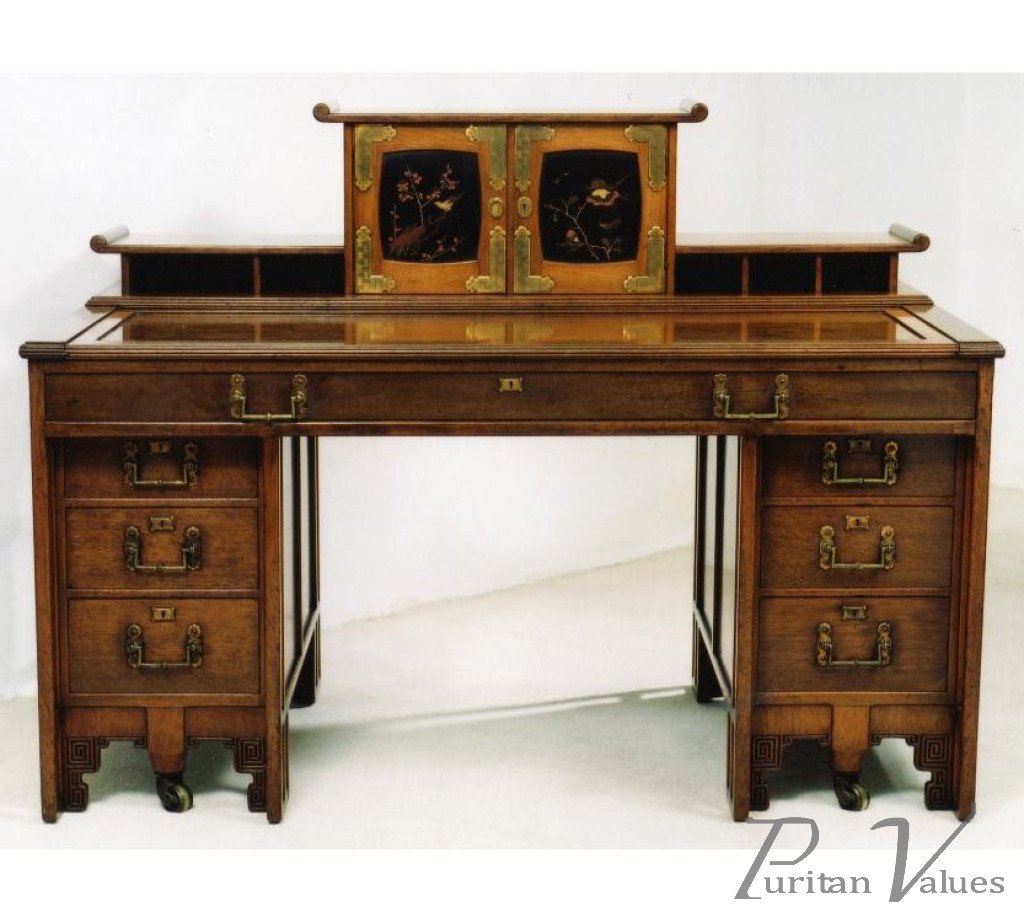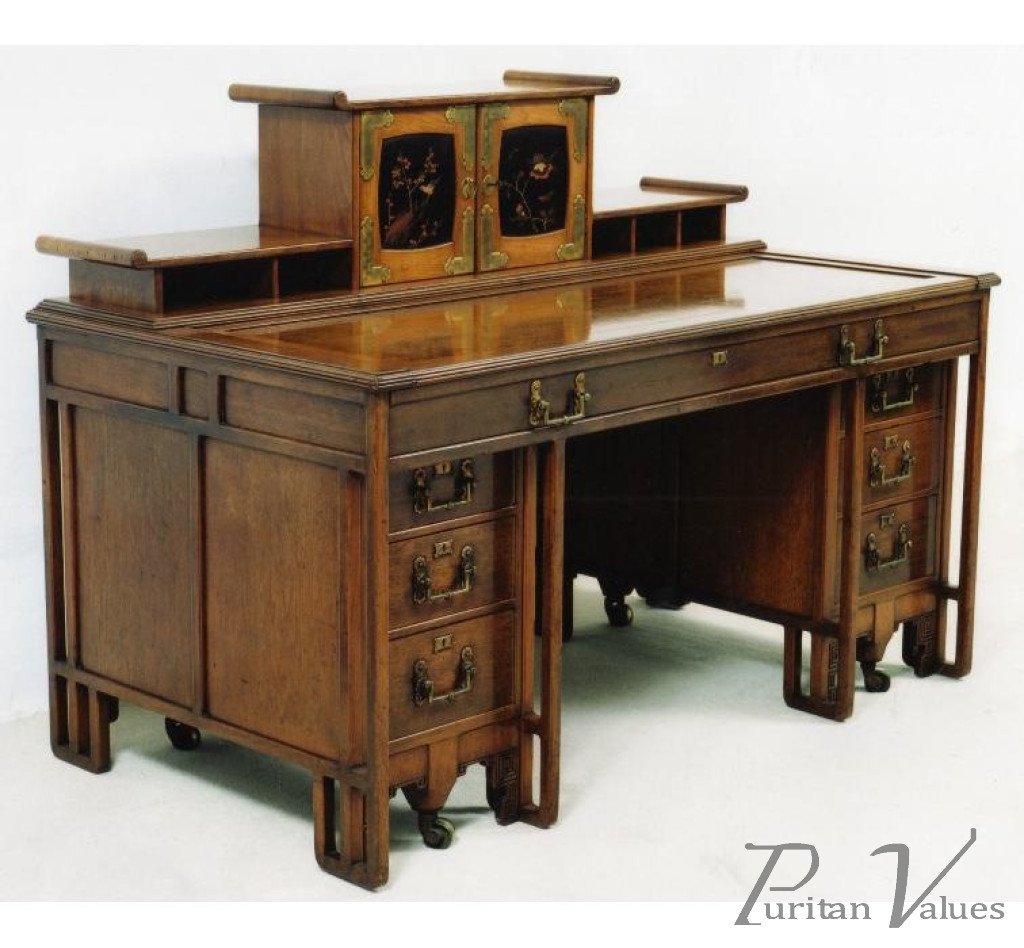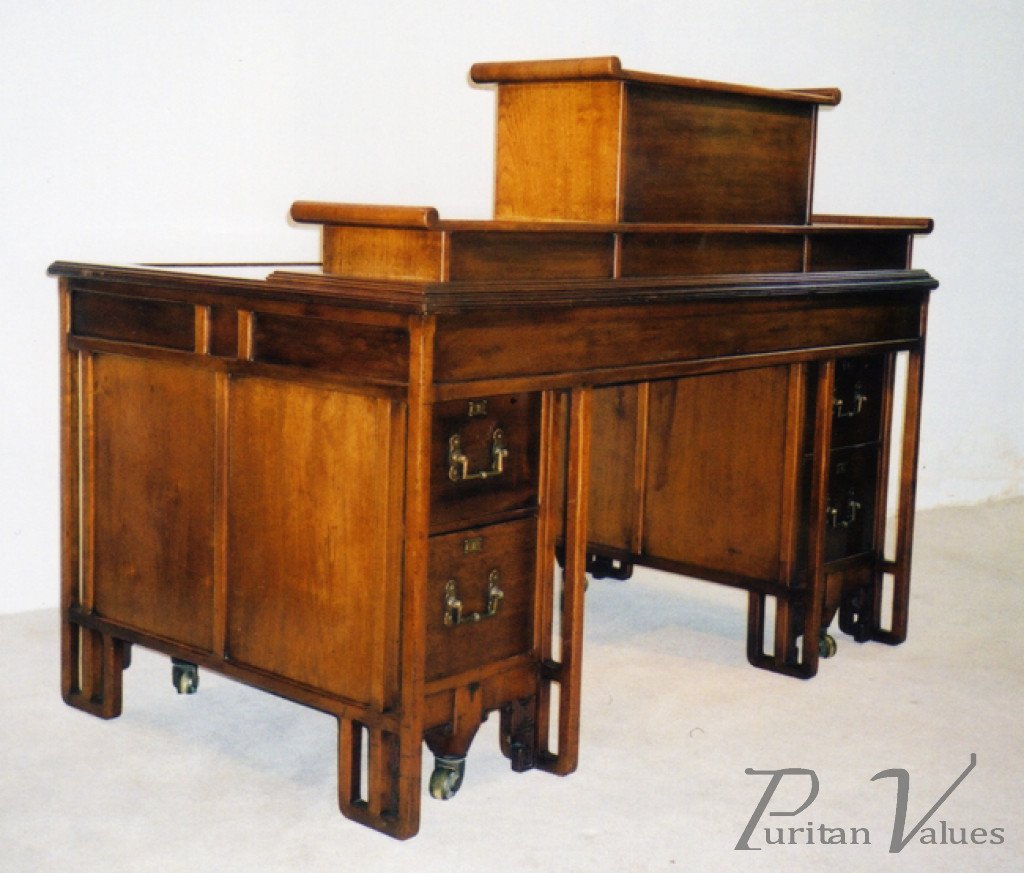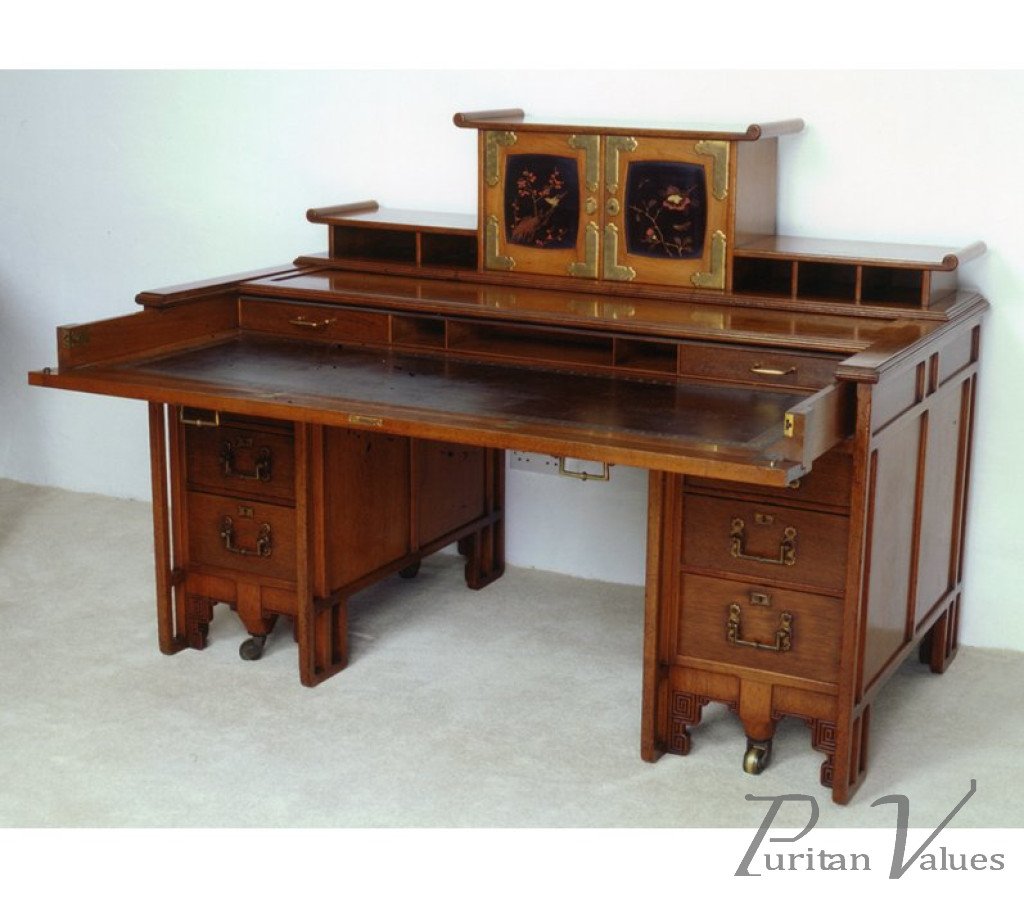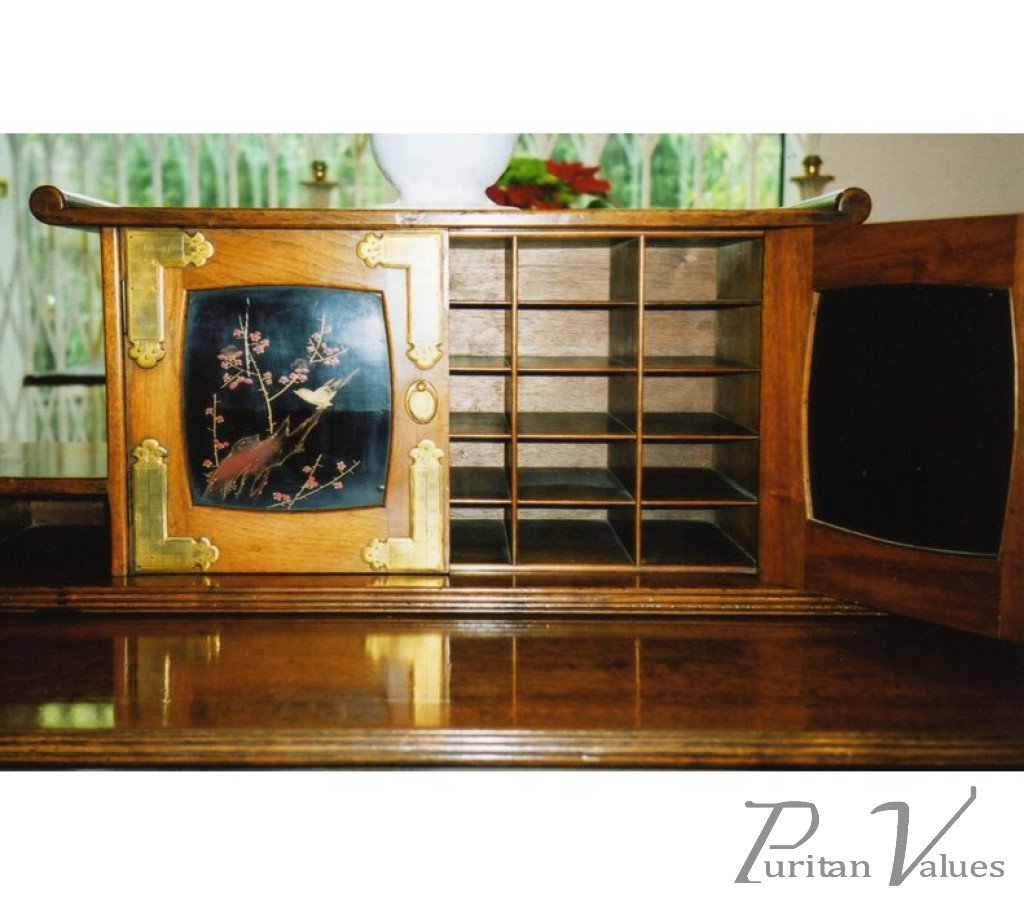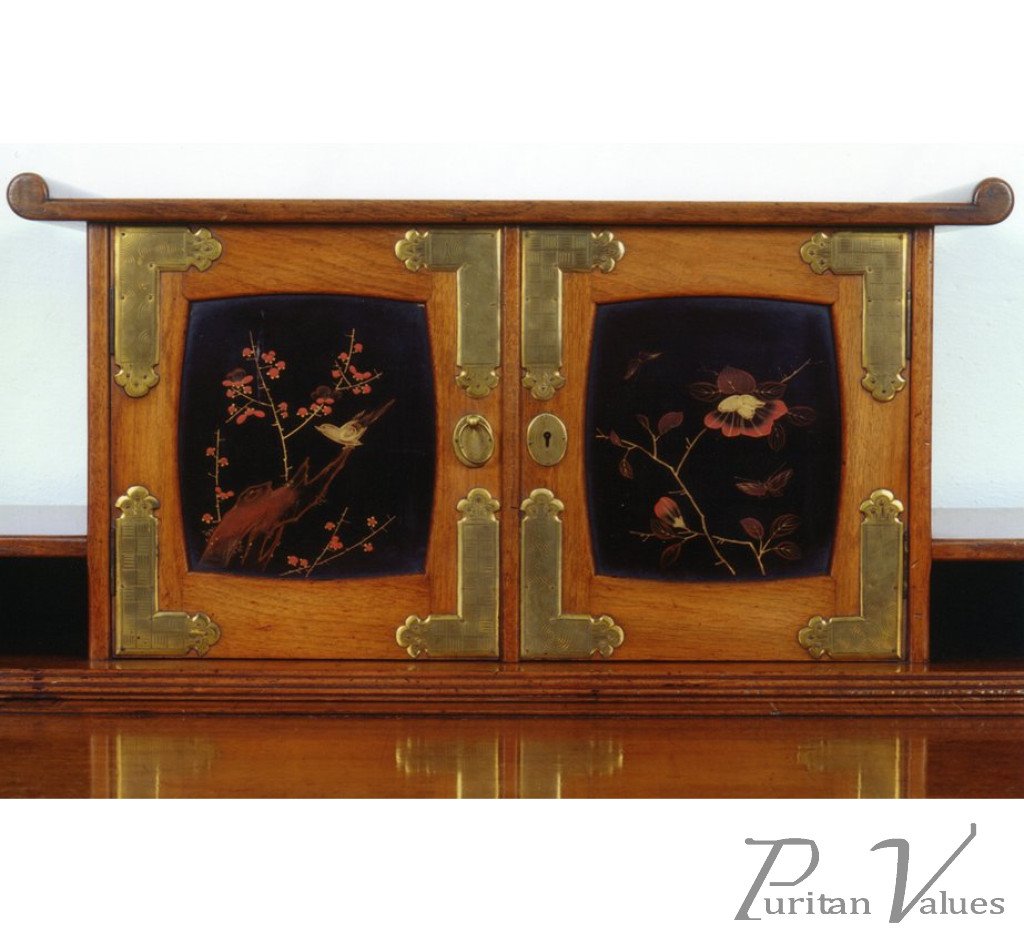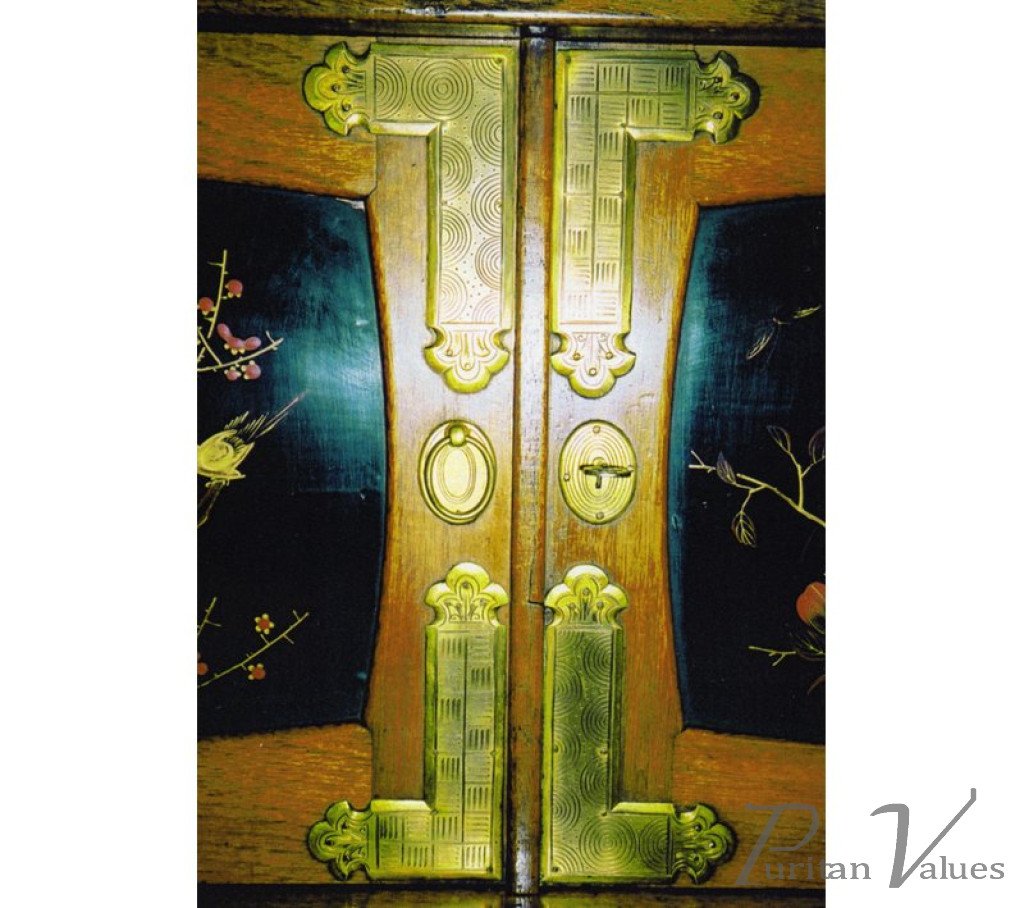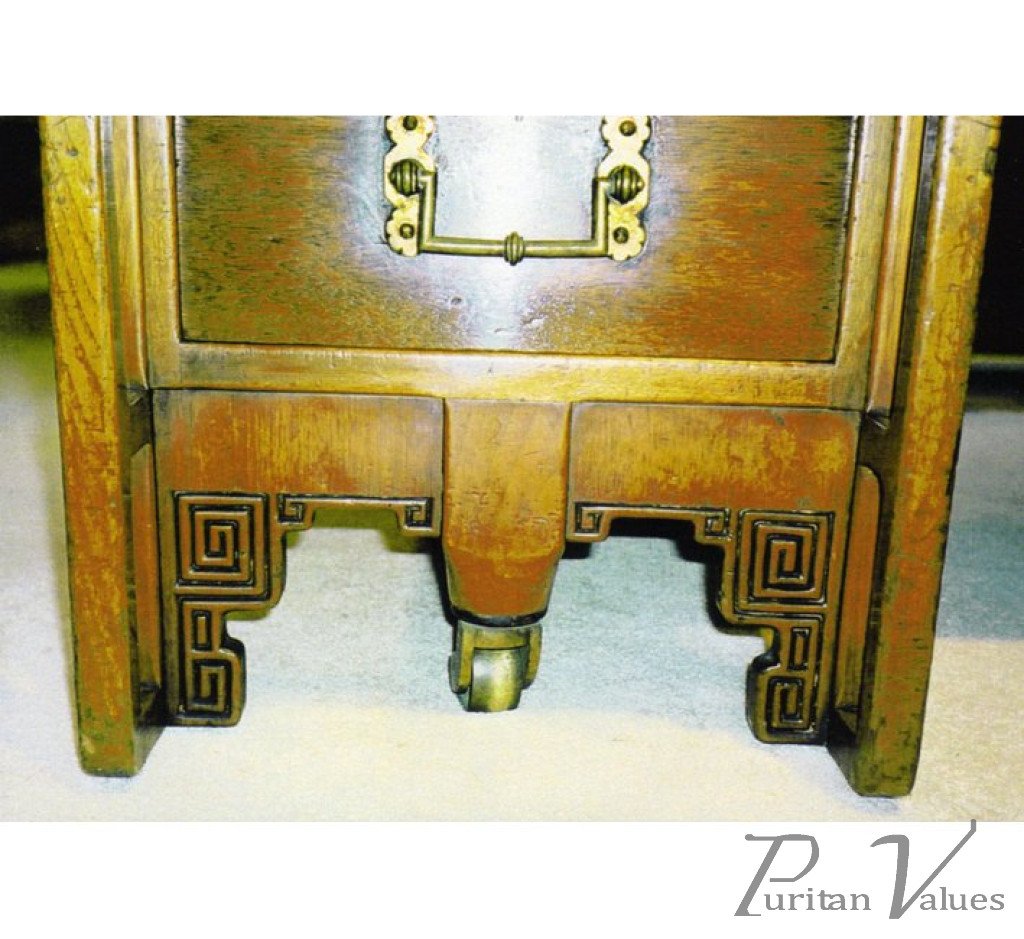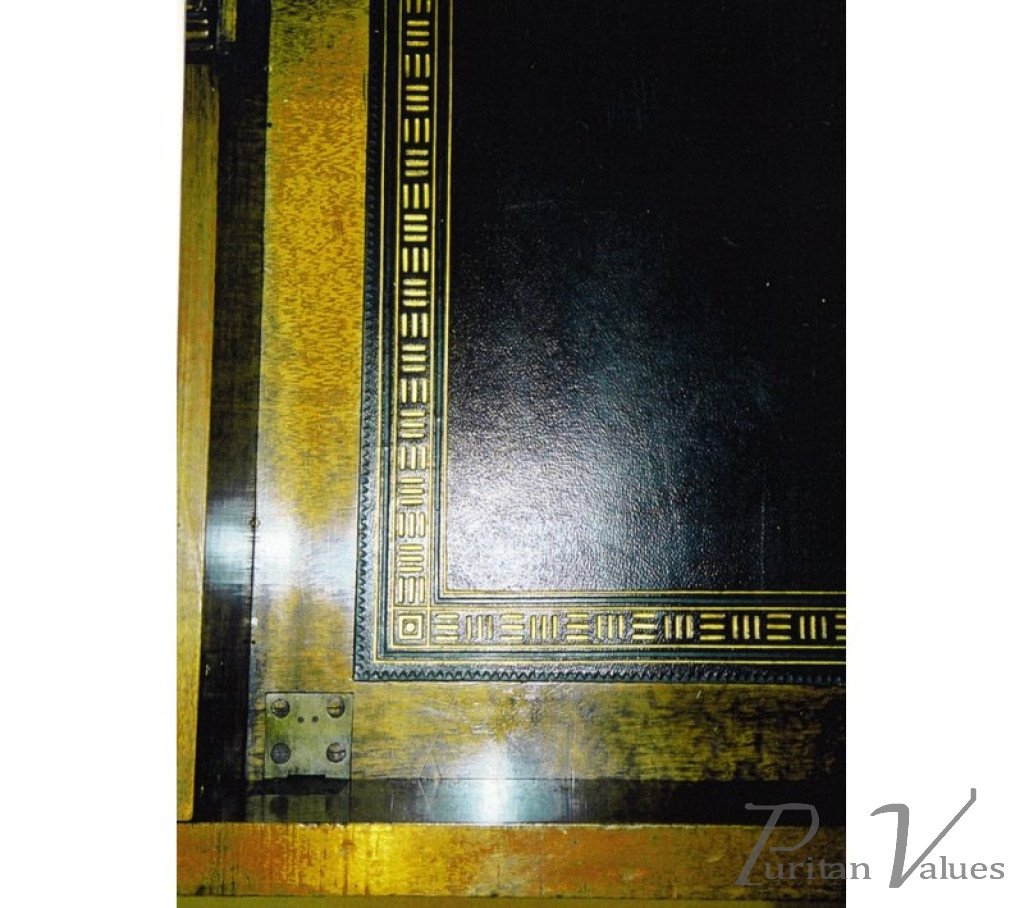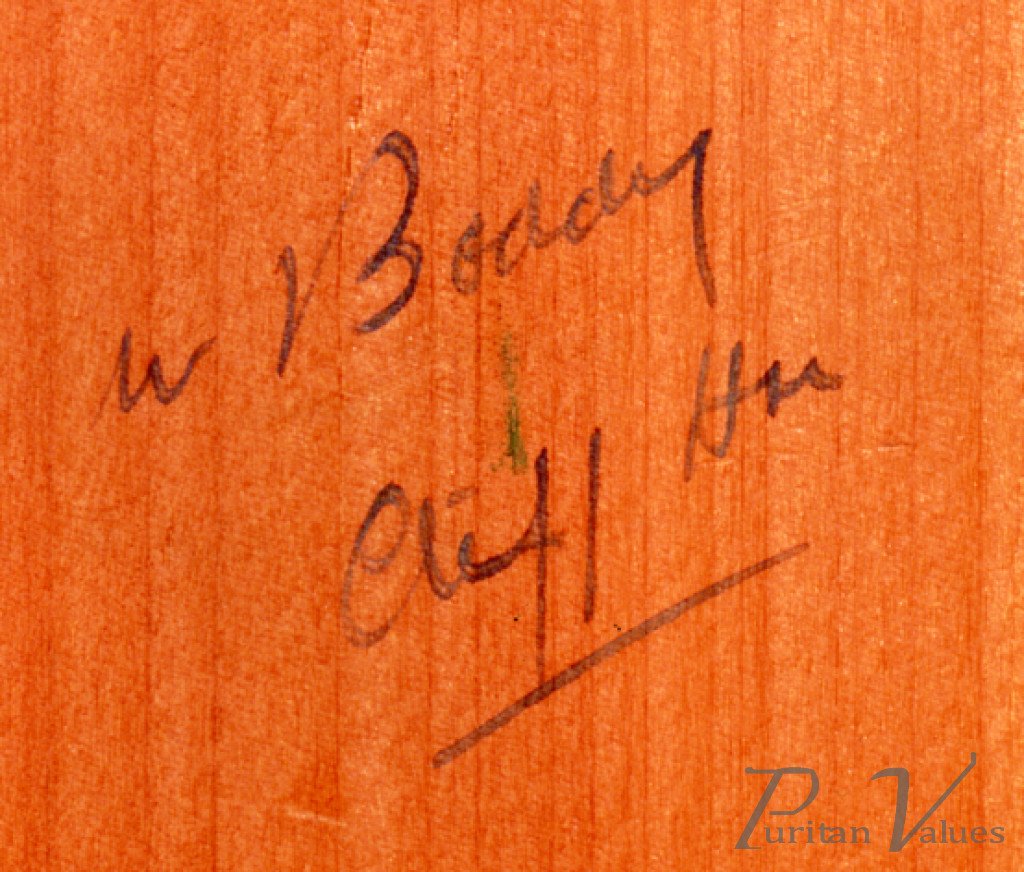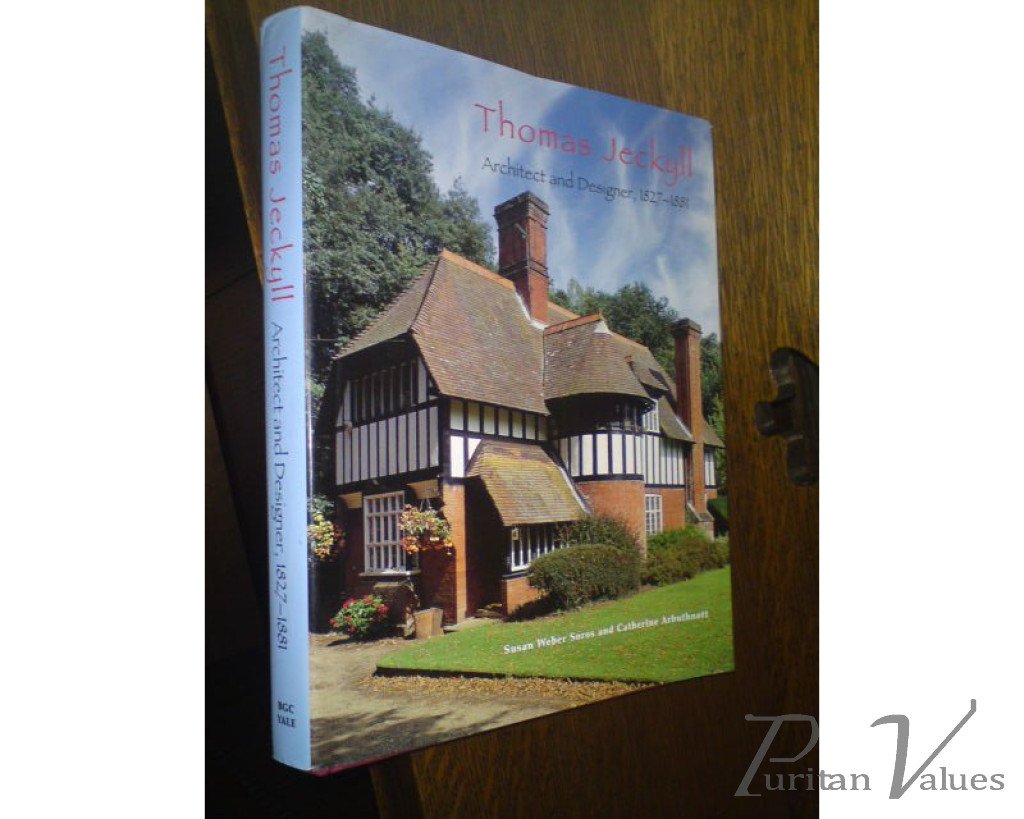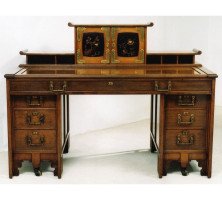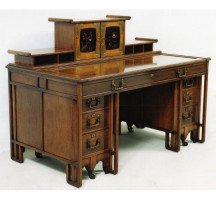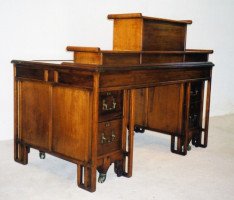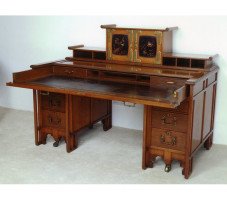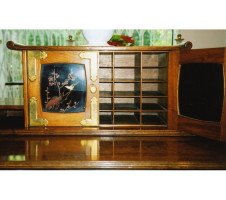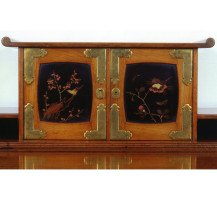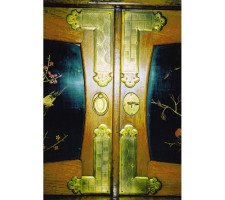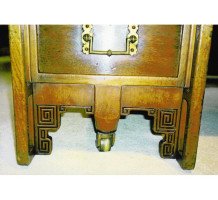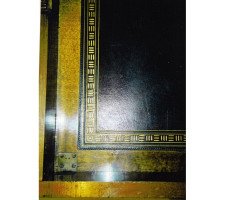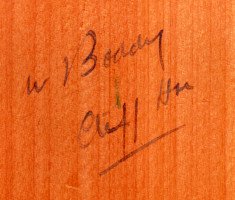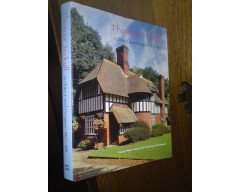Similar available products
Thomas Jeckyll for C Hindley and Sons. A fine and rare walnut desk in the Anglo-Japanese style
SOLD
Width: 60 in (152.4 cm)
Depth: 35 in (88.9 cm)
About this piece
Thomas Jeckyll. A fine and rare walnut desk in the Anglo-Japanese style designed by Thomas Jeckyll and made by Charles Hindley and sons. c1875 35" deep x 60" wide x 31" high “Thomas Jeckyll designed some of the earliest surviving furniture inspired in decoration if not in form- by interest in Japan" (Cooper p. 138) As can be seen on the desk, the style and design details such as the ‘Key’ design, the Japanese style lacquered door panels, the cross hatching and circle design on the brass door brackets, all combine to create a unique example of Jeckyll’s Anglo- Japanese work. The ‘Key’ design on the desk appears on many of Jeckyll’s designs including the cast iron grates and fenders made by Barnard, Bishop and Barnards and on furniture designed for ‘Alecco’ Ionides for his home at no1 Holland Park, London in c 1875. The ‘Peacock’ dining room at 49 Princes Gate in London also displays the ‘Key’ design on the walnut shelving and sideboard both designed by Jeckyll. The Japanese style lacquered panels on the desk feature in numerous furniture designs by Jeckyll example, the Edward Green overmantel from Heath Old Hall, Wakefield, designed in 1872, “Pastiche panels in the style of Hiroshige…" (Girouard p. 369) and on the walnut wardrobe for ‘Alecco’ Ionides’ bedroom in No1 Holland Park. c 1875 Also at No1 Holland Park, the Billiards room designed by Jeckyll had walls decorated with Japanese lacquered panels. “All of bird and flower subjects" (Aslin p. 94) As are the lacquered panels on the desk. Linda Merrill, on the subject of the ‘Peacock room’, observed that Jeckyll’s “sources for the carved patterns on the spindles that frame the porcelain are difficult to establish. Of the dozen or so designs. A few appear (greatly magnified) in the Philadelphia Pavilion. And some can be found in Jeckyll’s earlier furniture and metal work designs" (Merrill p. 205) “Fantastic, exuberantly eclectic confections made up of architectural and decorative motifs drawn from all phases of Jeckyll’s professional experience" (Merrill p. 258) The brass door brackets on the desk have a circle and cross-hatching design that appears on the shelves of the ‘Peacock room’. “The most prevalent imprint. A cross-hatching pattern, figures in several of the spindles" (Merrill p. 205) The cross hatching represents Japanese basket weave. Tony Geering. The iron brackets and railings for the Philadelphia Pavilion of 1876 also feature the circle design that appears on the door brackets of the desk A walnut dressing table designed by Jeckyll for ‘Alecco’ Ionides c1875, now in the Victoria and Albert Museum in London, bears comparison with the desk “…a careful study of its calculated asymmetry, subtle grooved decoration. And superb detailing reveals Jeckyll as a masterly furniture designer." (Jervis p. 94) The use of walnut in Jeckyll’s furniture was common. As can be seen in Christies auction catalogue of Ken Hill where numerous items of the furniture designed by Jeckyll are in walnut The wardrobe and dressing table for ‘Alecco’ Ionides and the shelving and dresser for the ‘Peacock Room’ are also made of walnut. “No matter where it was made nor how much it cost, Jeckyll’s furniture was still limited to expensive, one-off pieces that were part of a specific interior project and not intended for batch or multiple production" (Soros p.169) In conclusion, the combination of the pattern details, such as the ‘Key’ design, the cross hatching the circle design and the lacquered door panels, together with the general outline resembling a Pagoda, like the Philadelphia Pavilion, create a superb example of Thomas Jeckyll’s genius. “There has been no age since which could invent detailing as fine as on a Jeckyll cabinet" (FAS p. 10) Bibliography Aslin Elizabeth Aslin ‘The Aesthetic Movement’ 1981 London Christies Christies Auction ‘Ken Hill, Snettisham, Norfolk.’ 13th Sept 1999 Cooper Jeremy Cooper ‘Victorian and Edwardian Furniture and Interiors’. FAS Robin Spencer The Fine Art Society ~ Exhibition catalogue ‘The Aesthetic movement and the cult of Japan’ 1972 London Girouard Mark Girouard ‘The Victorian Country House’ 1979 Yale London Jervis Simon Jervis The Connoisseur 1972 ‘Victorian Decorative Art at the Royal Academy’ (The Charles Handley-Read collection) Merrill Linda Merrill ‘The Peacock Room’ Yale University Press 1998 London and New Haven Soros Susan Weber Soros ‘Thomas Jeckyll Architect and Designer, 1827-1881’ Catherine Arbuthnot 2003 New York Bard Graduate Centre.

